By Hend Selim
Dr. Ahmad Mezab, the Expert in military and security issues and crisis management, Consultant at Africa Geopolitics Center for Studies and former President of the Algerian-African Peace Committee has talked about the colonial powers’ interests in Africa, anti-France and ani-America waves in Africa, the future of ECOWAS and recent coups in West African countries.
How do you evaluate the election results in Senegal? Does it mean France is losing Senegal?
The last election in Senegal has given a confirmation that West Africa, especially the Sahel, is witnessing transformations on different levels. Also, the region is turning to new paths different from the traditional ones, while a new generation of leaders has emerged with new thinking, political programs and attitudes. This means moving from the traditional circle into a new circle.
Choice has been transformed. The Senegalese elected president belongs to a new generation and has ideas considered opposing those of previous regimes. Hence, Senegal’s election has confirmed the change witnessed by West Africa, especially the Sahel. The Senegalese model has tried to be safer than other models that have witnessed military coups and non-constitutional transformations. Senegal has tried to provide a new model of political transformations. It has used tools away from traditional methods that do not present a positive image as much as present a negative image and influence the political constructure path. Hence, the last election has interpreted smooth transformation and changes on different levels.
The future of ECOWACS
How do you expect the future of ECOWAS, especially after the withdrawal of Mali, Burkina Faso and Niger?
I think the Economic Community of West African States (ECOWAS) has only two choices. The first is searching for the organization restructure to go along with the transformation nature as well as assert independence, strengthen the concept of sovereignty for West African countries and the total liberation from dependency, which has led to exploit the region’s countries. That choice means the restructure, reorganization and reconfirmation of basics that serve West African countries’ interests.
ECOWAS has been criticized because it has been established by the French will. Also, France is the first beneficiary of the organization. The West African CFA franc’s profits, returns and benefits have gone to France. Hence, the steps to organize raw material exports as well to review contracts, programs and projects identify the rejection of France’s influence or existence. Also, there is rejection of employment and exploitation.
The second option is the possibility of withdrawal from the organization, which may be the stronger choice in the light of developments and indicators. That organization and West Africa region will fall apart and enter other paths due to that choice. Hence, France’s interests have been decreased while there is rebellion against the French influence. If West African countries want to preserve that organization, ECOWAS has to restructure and reorganize itself to serve West African countries’ interests. The proactive steps, taken or declared to think about, mean searching for solutions to keep the conglomerate.
US strategy in Niger
Are we witnessing the end of the American existence in Niger?
I think the United States are forced to cave to the authorities’ desire in Niger, but it will think about alternative choices to maintain the American presence in the region because the United States cannot surrender or withdraw easily. The United States realizes who will fill the void in the frame of conflict and competition with Russia. Hence, I think the United States may tactically withdraw but it will look for other justifications to keep its presence in the region. Especially the military bases that were in Niger had different and several missions such as drawing military maps and monitoring. Those bases have been considered by the United States as strategic ones. Those bases did not only concern Niger, but they concerned the region’s countries. The last movements during the previous days have given us indicators about. I think the United States may make excuses of combating terrorism to keep its presence in the region, especially the security situation in the Sahel is complicated.
The anti-French wave in the Sahel and its consequences
We can say there is a confrontation between France and Burkina Faso. In other words, Burkina Faso has expelled French soldiers and diplomats as well as it banned a French magazine. In the same time, France has suspended its aid to Burkina Faso. How do you evaluate the political situation in Burkina Faso and how can we expect the country’s future?
Currently, France does not have presence, or to say the least, the French existence in the region has become unwanted. France’s arms’ attempts to polish France’s image and distort the reality has increased tension and diplomatic deadlock in the region including Burkina Faso, although it was previously considered strong depth and extension of the French presence. Also, France’s agendas in the region were implemented through Burkina Faso. That major transformation and intense hatred of the French existence, which have reasons and backgrounds, have showed that there is refusal to anything related to France. France’s attempts at that time are wrong and will increase hatred and hostility toward the French presence. At the same time, the region is witnessing one of the worst conditions and situations, especially we are talking about a state of deadlock and complicated security scene.
Burkina Faso is severely suffering from lawlessness, terrorist strikes, terrorist expansion and terrorist groups’ geographical control, especially in the tringle border of Burkina Faso, Niger and Mali. Hence, the situation in Burkina Faso has become sensitive and precise. Even the political situation has not witnessed indicators of political stability or the emergence of political power through election. All of those aspects influence and increase the complexity as well as open the door for external parties’ manipulations and increase intension and competition among major powers over spheres of influence. France is seeking to invest chaos, security challenges and political instability to restore what it can.
To what do you attribute the anti-French and anti-US political wave in Africa?
When we talk about reasons behind anti-France and anti-America in Africa, especially in the Sahel, we may talk about a main headline with subheadings. The international conflict has found fertile ground for itself in the Sahel. Hence, we have found the conflict between Russia, China and their allies against the United States, France and others.
The region’s states have witnessed coups against France although their relationship with France, the French influence, presence and extension. Also, those countries were classified as spheres of influence, but the region’s countries have obviously divorced themselves from France due some considerations. France have not changed its strategy toward the region’s countries as well as it has treated those countries as colonies on the basis of dependency, the parental authority and discrimination. For example, France chose presidents, drafted policies, but France has not realized that the generations have changed, a new social system has emerged and the African countries have witnessed changes and there is awareness. Hence, France has been viewed as a colonial exploitive state that enslaves the region’s people, drain on the wealth, have not provided services or developed the region, which has led to the coups against the French presence and pursue any thing symbolizing that presence even on the cultural level; alternatives for the French language are searched. France’s ignorance about Africa has led to the current situation.
Anti-wave America can be attributed to the struggle for influence and the Russian presence in the region.
The Russian influence on the political elite in the region, especially states that witnessed coups, has confined the American role.
Russia’s strategy, China’s extension and the Turkish presence have led to the transformation toward the American presence and French presence.
Observers believe that the recent coups in Guinea, Burkina Faso, Mali, Niger and Gabon are arising from strong anti-France sentiments. What do you think about that?
At the beginning, the reading of events was indicating that the wave of coups expressed opposition to the French presence and existence. But following events and developments in the political and security areas as well as the reaction to the foreign forces’ presence, it has become apparent that there was exploitation of rebellion class against the French influence and presence. The rebellion class was employed in the context of the international conflict.
In reality, we could support that reading if the wave of coups led to establish the components of the national state, launch an integrated political project and expel any thing related to the foreign influence or the foreign military presence. But unfortunately, the players only have been changed from France to other players. Hence, those coups have not provided real alternatives and gone within the framework of strengthening the concept of the national state and the absolute sovereignty.
Unfortunately, the Sahel is witnessing unprecedented foreign presence on various levels and even it has transformed into indirect international confrontation ground. Also, the security situation has seriously deteriorated, and the terrorism phenomenon has become dominant on the scene. The Sahel is witnessing weakening of the concept of the authority and the concept of political institutions in several countries or pushing them into political vacuum which will increase the complexity. Hence, we say those coups have changed the players and have not gone within the framework of strengthening the national sovereignty absolutely.
To what extent can the last developments influence colonial powers’ interests in view of those countries’ strategic sites?
The colonial powers’ traditional interests have considerably declined and have been even limited to unprecedented level. I think those powers have lost strategic depth and spheres of influence which may push them to shuffle the cards and take steps that may not be in the interest of the region. France will not easily surrender and withdraw from Niger, especially 70% energy come from Niger. France was benefiting from Africa’s wealth. Although France has not gold mines; the gold was coming from Mali and increasing France’s reserve.
Also, Burkina Faso has strong strategic dimension. Hence, France will not surrender easily. Hence, anticipation is dominating the scene. Bone breaking battle is in its highest in the region. There is a conflict between restoring the spheres of influence and reinforcing the separation between France and the region’s countries as well as reinforcing the Russian presence as an alternative in the region. Hence, we are witnessing the conflict escalating in the region which I call the bone broking battle.
Potential for political unity among West African countries
Is there a chance that West African countries ally politically?
I think the presented option is repairing, reorganizing and restructuring ECOWAS to serve West African countries and prevent the external influence or the external employment. In my view, ECOWAS was enormously influenced by the French attitudes and desires in the region. Also, ECOWAS can be renamed to serve the region’ s states. Otherwise, I think any alliance in a specific context will be limited to time and related to a specific circumstance and may not serve the region’s countries’ interests well.
To what extent can Africa play a role in a multipolar world?
The major international events and strong international reactions’ landmarks were always lying on Africa’s ruins. I think Africa today are considered to be a main number in multipolar world’s landmarks. But the question if Africa will be an object as it was in the previous periods or it will be an actor or player to draw the new international systems’ landmarks.
I think the current conflict is based on that paradox. The African continent may be as it was in the past: the powers’ landmarks were drawn in its ruins. The other option: the African continent will rise by its potential, voice and ability to be a partner in drawing the new multipolar world system’s landmarks. I view unprecedented events escalating in the region while the international conflict is intensifying. The question: where does Africa stand in this equation? Has the African continent started to wake up? Will the African continent shift the path?
Status of non-Western forces in West Africa
To what extent can China play a major role in Africa in light of the increasing volume of trade exchange between the two sides?
China has intelligently managed the game well. China has chosen development, economic partnership, strengthening abilities and supporting technology to reinforce its position and mange its strategic project. Today, the Chinese presence is smoothly increasing and strengthening step by step. We may talk about a conflict situation including America, France, Russia, Iran and Israel.
China is trying to reinforce its positions and take strategic positions through employing soft powers and getting support by African states. Hence, the Chinese strategy is considered successful in comparison with other countries and it extends in a form that serves its interests and reinforces its presence in the region.
Can Türkiye, Russia and Egypt develop a joint strategy towards African countries?
I think it is difficult to talk about a joint Turkish-Egyptian-Russian strategy, because the three parties could not agree on some points. I think the Russian attitudes and the Turkish greed do not serve Egypt’s strategy in the region.
Egypt strategic interests are opposing Russian and Turkish policies. There is a strategic partnership between Russia and Egypt, but it can not be for Africa or for its stability and security. I think Türkiye and Egypt have mutual interests, but these are limited to a specific strategic level. I think Egypt’s agenda does not match the Russian agenda or even the Turkish agenda to design mutual strategy in Africa.
How do you evaluate Türkiye’s role in Africa? Can Türkiye play a positive role in the development of African countries?
Türkiye is adopting a strategy based on 3 pillars toward Africa. That strategy has started from strengthening partnerships and economic cooperation. We see the number of initiatives and projects is increasing every year. They have reached a record level in comparison with previous years.
The second pillar is investing in some crises through aid, support and cooperation, which is sometimes interpreted as employing other paths.
The third pillar is interfering in crises in some countries which has enormous influence. The Libyan model is an example.
I think if Türkiye wants to keep positive presence in the region and gain acceptance from the region countries, it must stop thinking of some countries as extension to Ottoman Empire and acts within the framework of partnership, economic cooperation and contributing to economic structure, which will be a positive indicator of the Turkish presence. Otherwise, I think we are talking about a chance that Türkiye’s involvement in crises can be avoided.


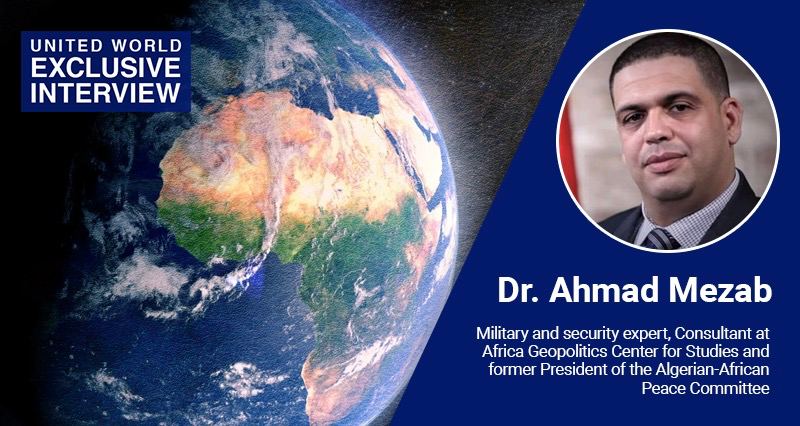


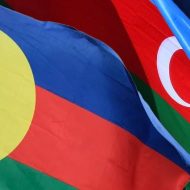
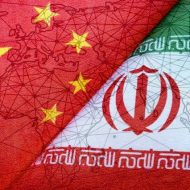
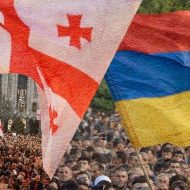
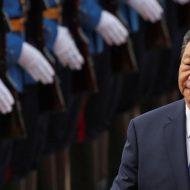
Leave a Reply